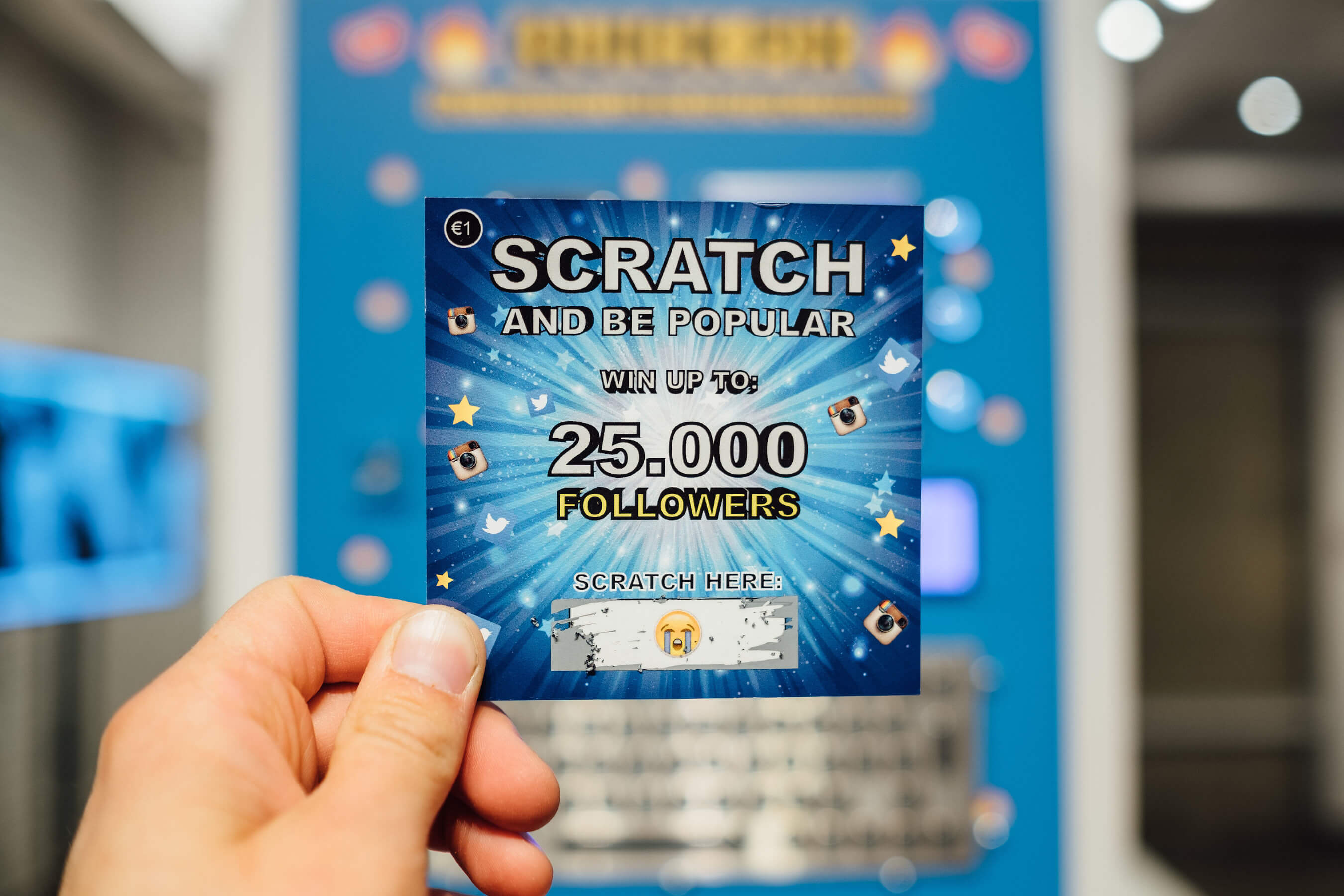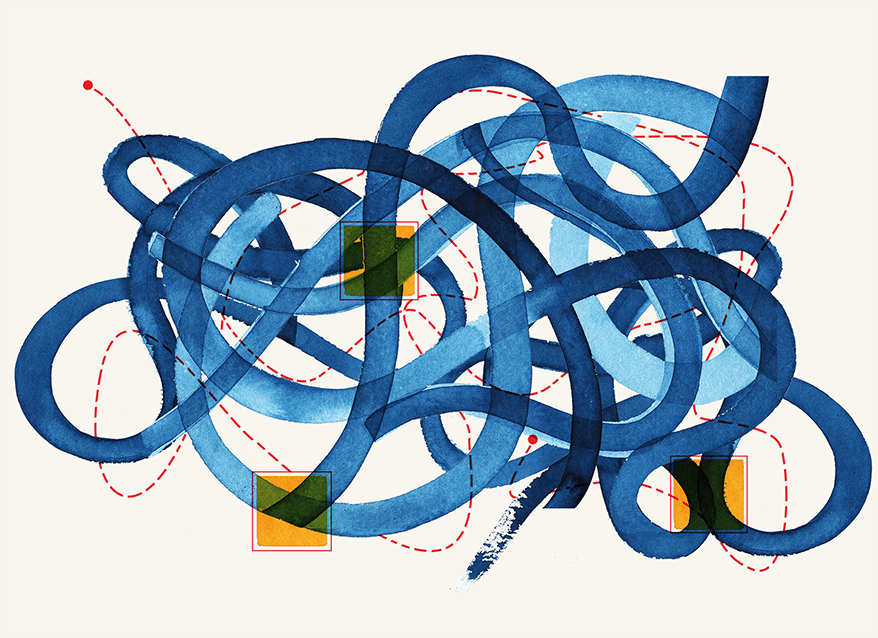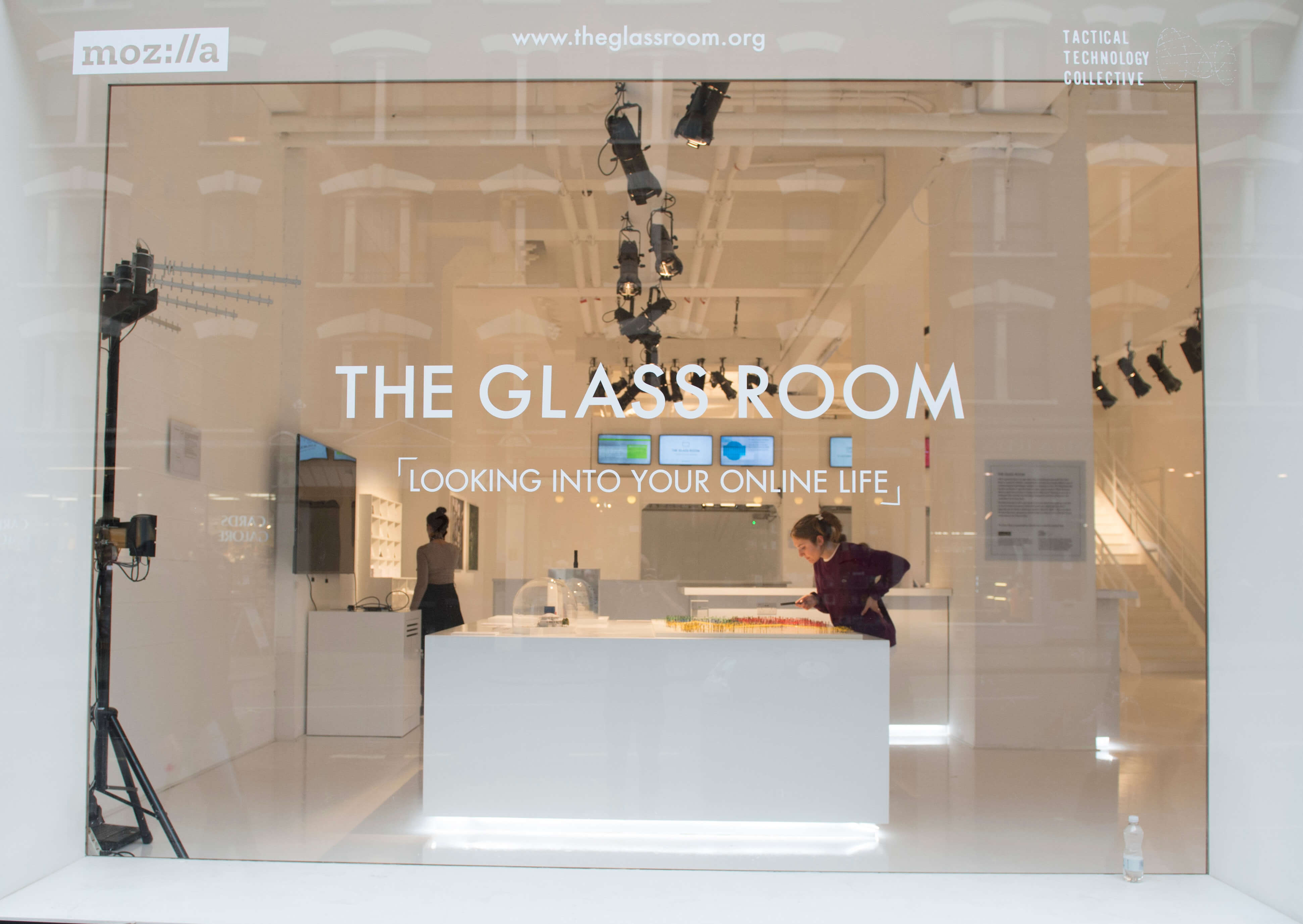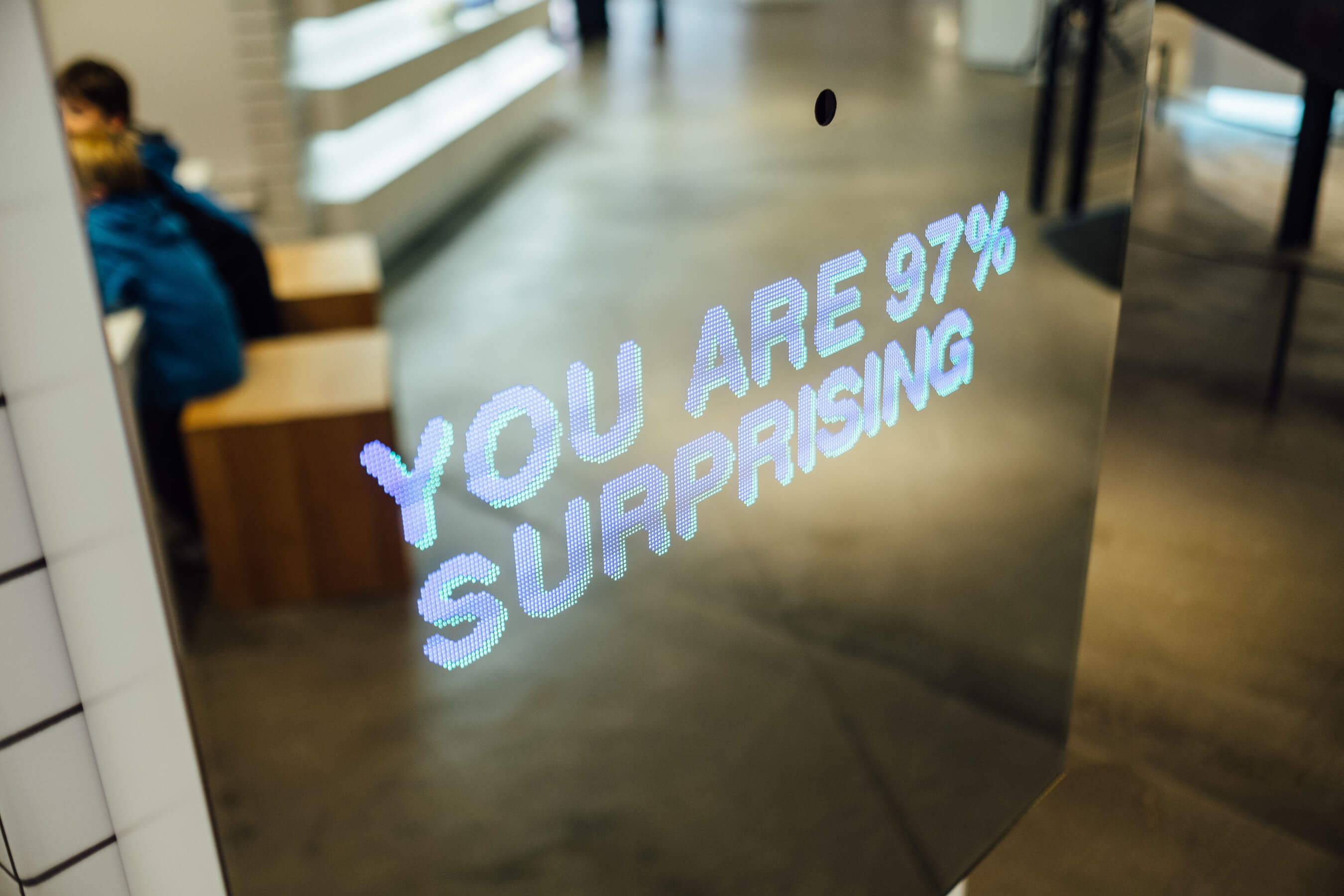Sensorium
#3 Stockpiling Food For Thought with Daisy Kidd - Tactical Tech
Dear friends of Sensorium,
We hope you are safe and taking care of yourself and the people around you. In these unusual and uncertain times, we believe more than ever in the importance of connection and sharing. To stay in touch in times of social distancing, to gather our ideas and to contribute what inspires us, we decided to launch a weekly format bringing voices from our community to reflect on the current pandemic situation and its potential implications.
This is edition #3 of Stockpiling Food For Thought - the Sensorium Quarantine Weekly Special.
Since the beginning of Sensorium, one of our main objectives has been to try and make sense of technology. We feel this mission even more crucial in this period, when forced isolation is making us rely on online tools for most of our social interactions, and when a variety of dystopian tech-based solutions are announced as potential solutions to the pandemic. We asked Daisy Kidd, communications coordinator at Tactical Tech about how to keep a sane relationship to technology in times of crisis.
.jpg)
Daisy Kidd, communications coordinator at Tactical Tech
-
- 2020
Tactical Tech is a Berlin-based international NGO that engages with citizens and civil-society organisations to explore and mitigate the impacts of technology on society.
Since 2003 their work combines activism, awareness-raising and reflection about appropriate responses, strategies and tactics to navigate complex environments in sustainable ways. Among other projects they are producers of the Data Detox Kit, a guide to increase online privacy, digital security and wellbeing, and of The Glass Room, an interactive exhibition aiming at encouraging a global conversation about data and privacy. They also research the impact of data-driven political campaigns on the integrity of the democratic processes with project Data and Politics, and give citizens and civil society organisations to use digital investigations to uncover truth or corruption with project Exposing the Invisible.

An object called "Quick Fix" by Dries Depoorter in the "Deeply Personal" section of The Glass Room San Francisco.
Sensorium: Thanks a lot Daisy for answering our questions! How did the current situation affect your organisation and your working conditions?
Daisy Kidd: Tactical Tech has moved to virtual office (from our flats). Some of our projects can easily start remote working and others have had to adapt. We do quite a lot of in-person workshops, public interventions, talks etc. so now we are finding new ways to reach our audiences, as are many organisations around the world. We are also working on some new material to directly address the problems people are facing in navigating this new tech-dependent lifestyle.

Illustration by Ann Kiernan for project Exposing the Invisible by Tactical Tech
Sensorium: The rise of the pandemic was very quickly relayed online, in the news and on social media. A formidable amount of information, true and fake, is going viral. What do you think the current panic movements and amount of fake news can testify about our societies and their vulnerabilities?
Daisy Kidd: The way that people share, consume and contribute to information online is fluid, which inevitably leads to less control over the content. Unfortunately when a crisis happens, like the Covid-19 pandemic, this spread of information is accelerated and some of it can be misleading or false leading to important health information and updates getting lost or overlooked.
The good news is that most internet users are familiar with consuming information in this decentralised way. A lot of people get their news updates from multiple sources and on multiple platforms and know not to take everything at face value.
A general tip is to check yourself if you find that something is shocking or provocative, and to check information against multiple sources. Tactical Tech’s Data Detox Kit just released a guide for steering clear of misinformation online.

Illustration by Alessandro Cripsta for project Data Detox Kit
Sensorium: Social distancing guidelines are pushing everyone to go online, and to dramatically increase the dependency of our activities and social interactions on technology. What do you see as risks and opportunities in this change in individual and collective behaviors? What would be your recommendations to our readers in these new times?
Daisy Kidd: We’ve probably all had a moment of feeling grateful for technology in the past couple of months. Being able to stay connected, entertained and updated is really important, especially when a lot of our activities have moved inside. Of course, we’ve probably all had a moment (or two) of screaming at technology when it doesn’t work when we need it to.
Either way, an increased dependence on technology can be bitter sweet. One of the risks is that with an increased use of technology, we end up using platforms and services that have low privacy or security standards. There’s a great guide from Electronic Frontier Foundation on using tools during Covid-19. There is an opportunity to get creative in our use of technology. Already people have started to have online gatherings, dance classes, and classrooms. For some people, this is new territory and it is an opportunity to reach more people and learn new skills.
A very basic, but important, tip is to take care of your digital wellbeing. If you find yourself getting lethargic from being online too long, or you keep checking your phone for news alerts, create some personal rules or routines that help you to stay in control. Some tips on how to do that here!

Visitors of The Glass Room exhibition in London.
Sensorium: Some people say this pandemic will be a trigger for a wider paradigm shift in society. Do you agree? Can you describe how you see the importance and impact of this event on a larger scale?
Daisy Kidd:A scenario such as this, that has such a global impact, will no doubt create some wider shifts in society. Some of these shifts will be short term, and others long term and more entrenched.
We have already started to see a growing dependence on technology, and some of that might be hard to shake off, especially the positive outcomes. For example, finally teaching older relatives how to set up video calls may mean that we see an increasing rate of digital literacy among older generations. Or after being stuck inside with digital devices, people may learn methods of digital wellbeing that work for them such as no evening screen time.
On a wider societal level, there is a strong sense of community that comes from a feeling that everyone is in this together and it is dependent on mutual support. Perhaps people bought shopping for a neighbour that they hadn’t spoken to, or they clapped on the balcony to support the healthcare workers, or they watched videos of people around the world dealing with the crisis in different cultures and languages. This is a leaning towards collective instead of individual mindset and that may have a knock-on effect on how we work, treat each other and even vote.
The systemic fallout from the pandemic will be huge. Whilst the financial and political systems may take the worst of it, a silver lining is that the environmental systems may get some rest bite from unrelenting industry and production.

An image of a piece called "Stealings Your Feelings" by Noah Levenson, at The Glass Room San Francisco
Sensorium: What has been the most inspiring or creative reaction to the pandemic that you have seen so far?
Daisy Kidd: There are so many that it’s hard to summarise. Sometimes the simplest ones are the best, such as children’s authors doing live story time readings for young people, or people making up funny DIY videos with things they’ve found in their homes. A video was circulating of a man running a marathon on his balcony which is both creative and awe-inspiring!
In Germany, where Tactical Tech is based, there was an online hackathon with over 40,000 participants all seeking to provide digital solutions to the problems to do with the Covid-19 pandemic. The Federal Government initiated it and will grant some of the chosen projects with funding to carry out the projects, alongside a public vote.
Tactical Tech online:
Credits:
Writing: Célia Bugniot
Interviewee: Daisy Kidd, Tactical Tech
Editing: Lucia Dubačová
Publishing: Sensorium Festival
Pictures: Courtesy of Tactical Tech